Soil is much more than just the dirt beneath your feet. It is a vital source of water, gases and nutrients for plants, it provides an anchor to stabilize even the tallest trees, and provides a home for animals, bacteria and fungi.
Soil is important because plants absorb water & nutrients in the soil for photosynthesis & respiration. Microorganisms living in soil play critical roles in the nitrogen and carbon cycles, ‘fixing’ these elements in the air and enabling plants to use them.
Plants make use of the different elements of soil to help them grow, even forming symbiotic relationships with soil microorganisms that live there.
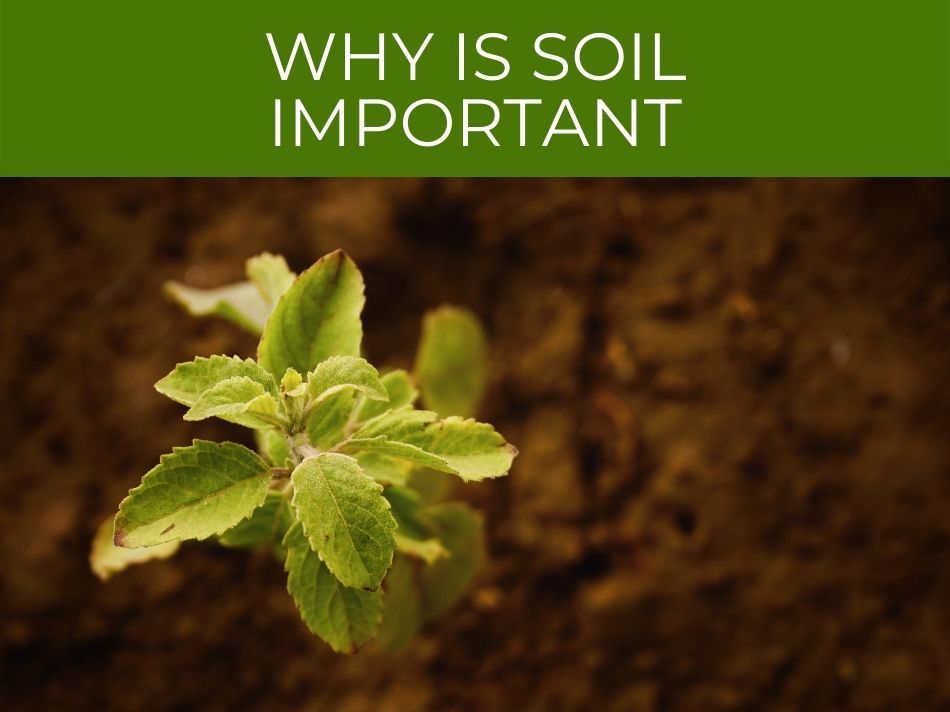
Why is soil important
Soil is the top layer of the earth’s surface, and is made up of several layers that sit on top of the ‘bedrock’.
Soil is made up of minerals, dead organic material like plants and animals and their waste, liquids and gases.
Soil is important for life on earth because it enables plants to grow, it stores and purifies water by filtration, and it helps keep the earth’s atmosphere stable.
Soil is important since it acts as a medium for plants to grow, stores & purifies water, & helps keep the earth’s atmosphere stable. It is also a habitat for animals, bacteria & other organisms that live in the soil.
Soil is also a home to many kinds of living organisms, like insects and worms, bacteria and fungi.
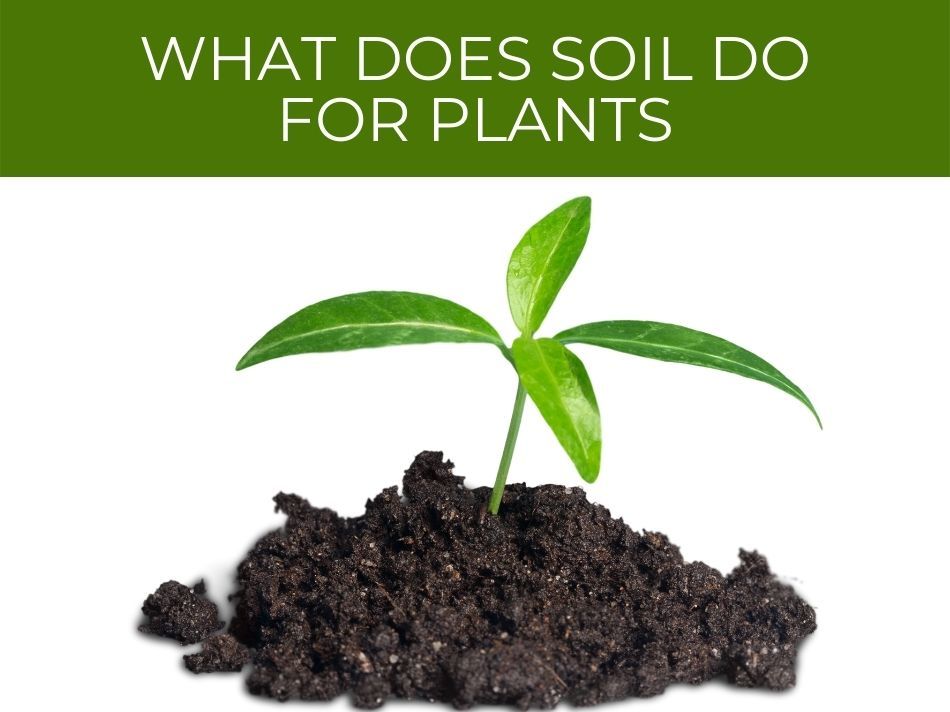
What does soil do for plants
Soil provides an anchor for plants to put their roots into, which gives them the stability to grow tall and stops them from being damaged in bad weather.
Plants also absorb water, carbon dioxide and oxygen from the soil through their roots, which are needed for photosynthesis and respiration.
See this article for more on photosynthesis.
Plants use soil to anchor their roots to the ground, providing stability & allowing the plant to grow taller & reach more sunlight. Soil also contains water, carbon dioxide, oxygen & nutrients, which plants need to grow, & are absorbed by the roots.
The water in the soil contains nutrients which are needed for plant growth.
See what the soil type is in tropical rainforests.
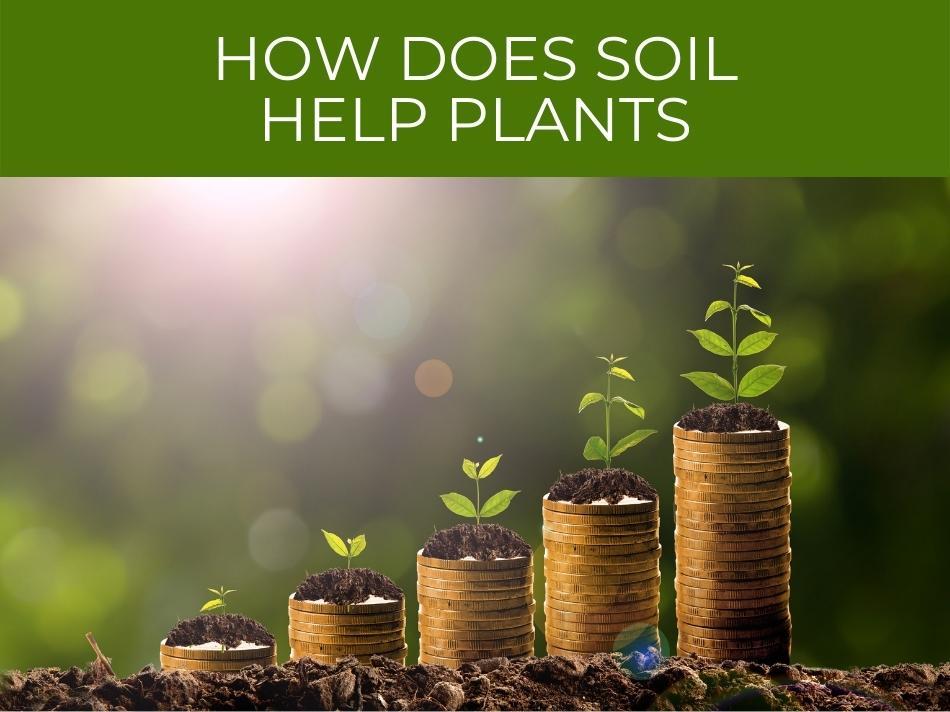
How does soil help plants
Water and carbon dioxide in the soil are used by the plant during photosynthesis, which is how the plant makes its own food.
Oxygen in the soil is used in respiration, which is how plants turn food back into energy when needed.
Soil contains water & carbon dioxide, which are needed for photosynthesis, & oxygen, which is used in respiration. Soil also contains nutrients that the plant needs to grow, which are dissolved in the water, & enter the plant through fine root hairs.
Roots in the soil absorb water through osmosis, and dissolved nutrients in this water are also absorbed and used for plant growth.
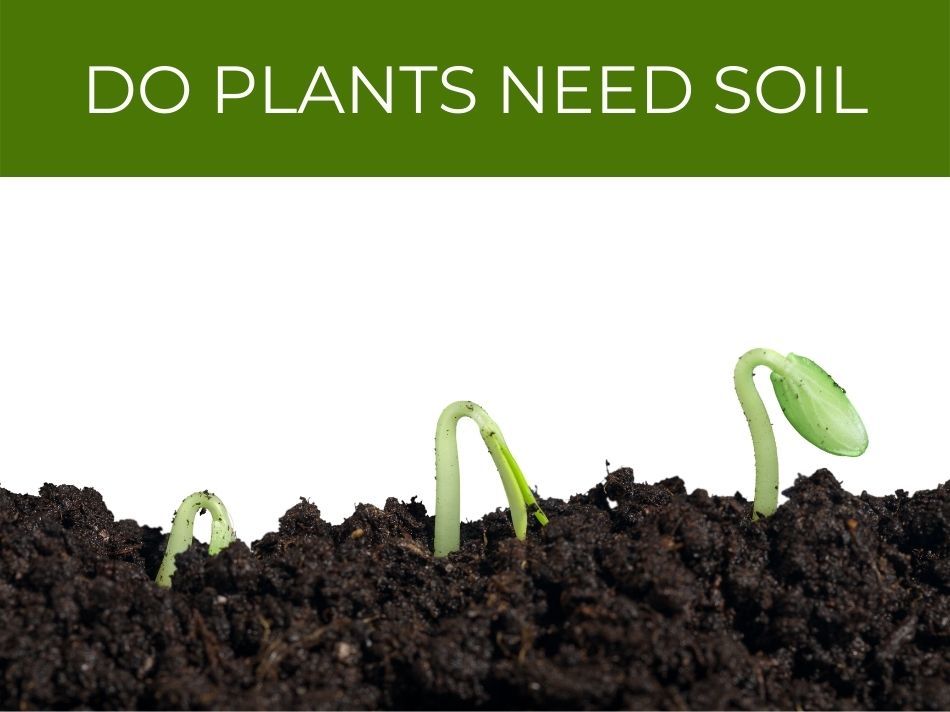
Do plants need soil
Plants do not actually need soil to grow.
As long as plants have access to water, air and nutrients, they do not need soil to grow.
Check out this post for how to grow beans in a bag.
A growing method called hydroponics grows plants suspended in water.
Air and nutrients are dissolved in the water, and a small structure is used to keep the plants in place and give them support.
Check out the complete article on hydroponics.
Plants do not need soil to grow if they can get water, carbon dioxide, oxygen & nutrients from another source. An artificial growing method, called hydroponics, grows plants only in water. Nutrients & air are dissolved in the water & they are provided with a small structure to give support.
Hydroponics can use less water, energy and fertilizer than conventional soil growing methods.
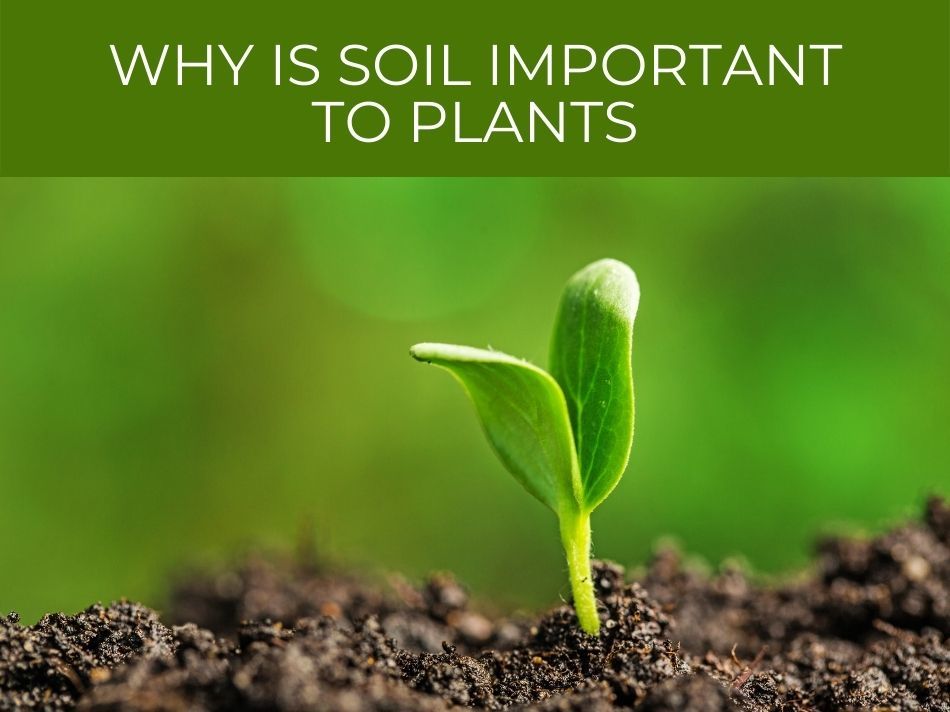
Why is soil important to plants
Plants use soil as a source of water, carbon dioxide, oxygen and nutrients.
Soil is important for plants as a source of water, gases & nutrients. It also provides plant roots with an anchor, which helps stabilize them as they grow, & stops them from getting damaged in bad weather.
Plants also use soil to help stabilize them in windy weather, and stop them from being washed away in heavy rain.
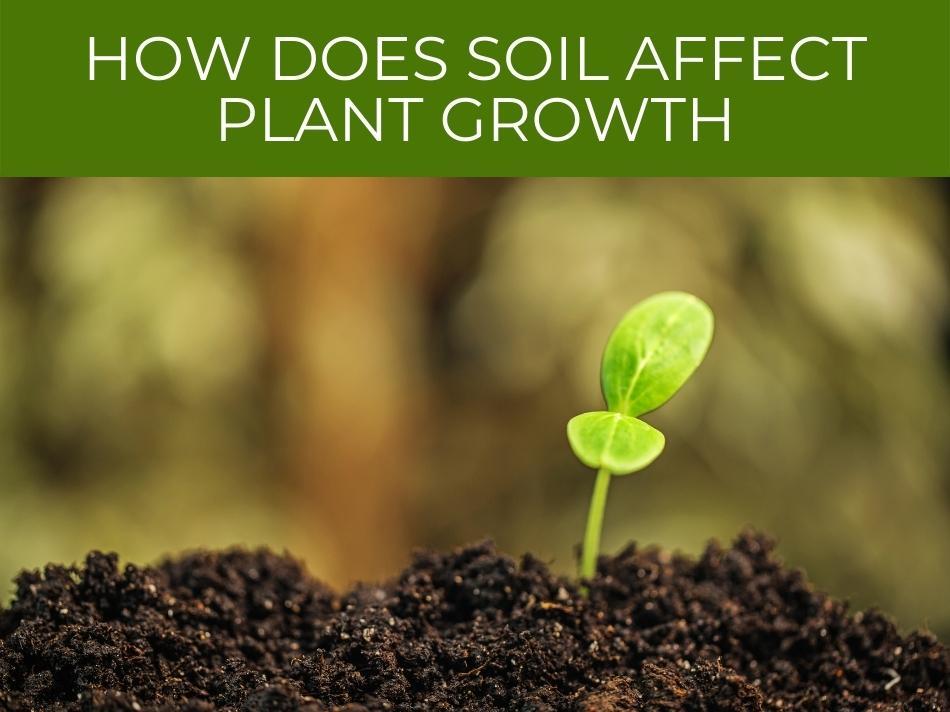
How does soil affect plant growth
Plants need different kinds of nutrients to grow, and they get these from the water in the soil.
The three main nutrients for plants are nitrogen, potassium and phosphorus.
Nitrogen is used in plant protein, hormones, and chlorophyll – the green pigment that absorbs light for photosynthesis.
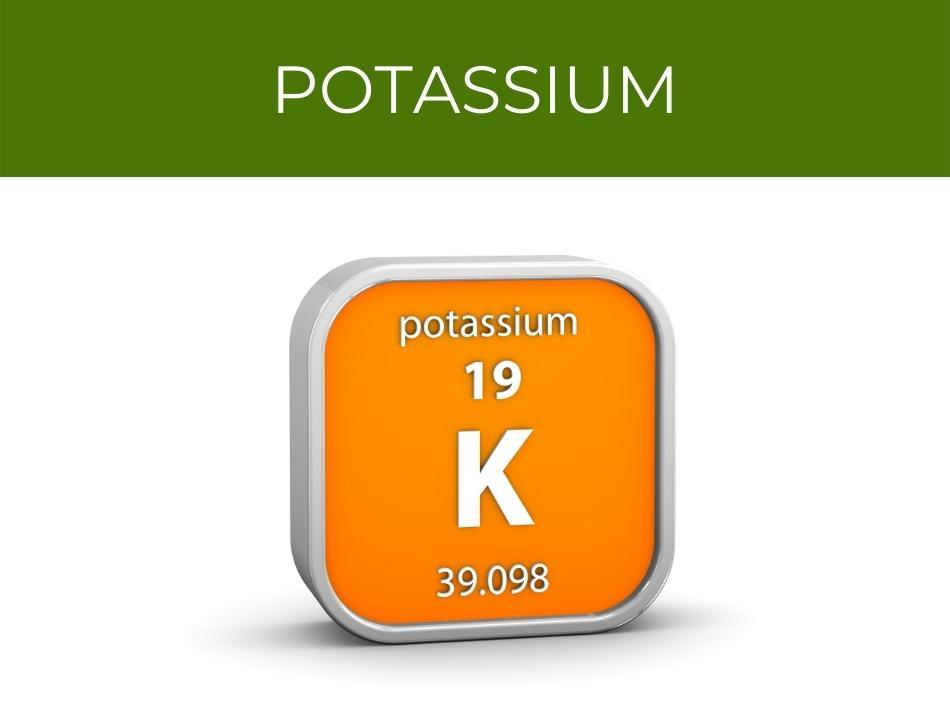
Potassium helps make starches, sugars and fruits and stops plants from getting diseased.
Phosphorus helps plants convert energy in sunlight to food, and makes young plants grow and mature faster.
The nutrients in soil enable plants to grow. The 3 main elements that a plant needs are nitrogen, potassium and phosphorus. Plants also need calcium, magnesium and sulfur, as well as smaller amounts of trace elements. The acidity of the soil can also affect plant growth.

Calcium is needed for growing healthy roots.
Magnesium is found in chlorophyll.
Sulfur is part of plant proteins and helps make energy for the plant, and is also what gives onions their flavor and cabbages their smell.
Trace elements are needed in smaller amounts, and include iron, manganese, copper, zinc, boron and molybdenum.
The acidity of soil is also important for many plants.
Some plants prefer neutral soil, whereas others, like blueberries, prefer acidic soil, and some prefer alkaline soil.
Hydrangeas are a special plant, whose flowers change color depending on the acidity of the soil.
In acidic soil, hydrangea flowers turn blue, but in acidic soil, hydrangea flowers turn pink.
Check out the complete article on how to lower soil pH.
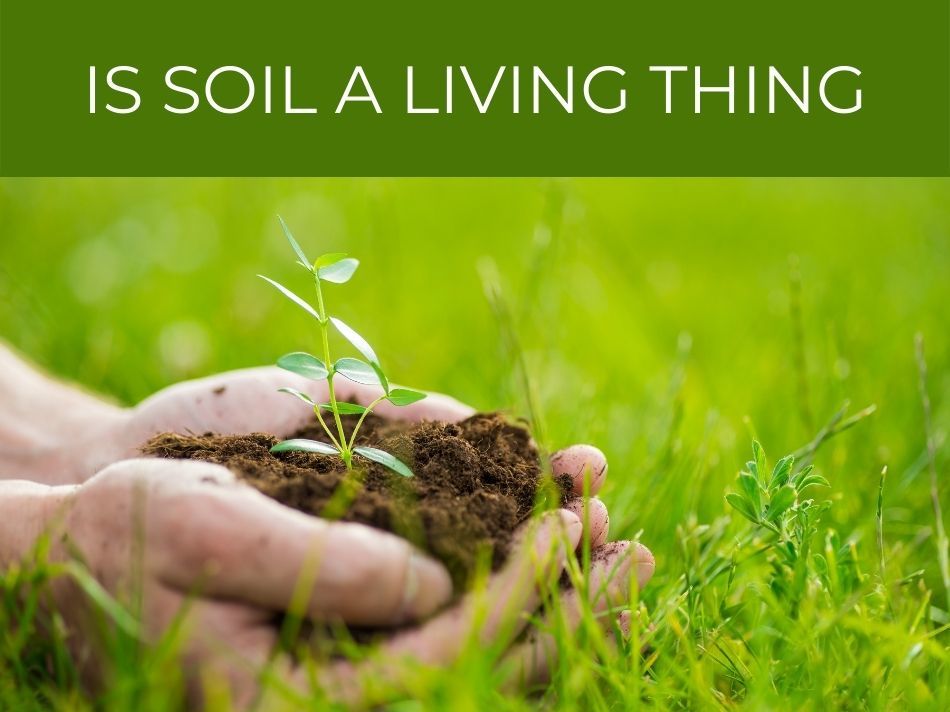
Is soil a living thing
Soil is made up of dead organic matter, minerals, gases and liquids, all of which are not living things.
Soil does act as a home for many living organisms, however.
Animals that live in the soil include insects like millipedes and centipedes, and worms.
Soil itself is not a living thing, but it does provide a home for lots of living organisms. This includes animals like insects and worms, bacteria & fungi. They feed on organic matter, & their waste goes back into the soil, playing a critical role in the carbon cycle & nitrogen cycle.
Bacteria are important for soil health because they ‘fix’ nitrogen and carbon in the air, into the soil.
This nitrogen and carbon ‘fixing’ is part of the nitrogen and carbon cycle.
Most plants have a symbiotic relationship with microorganisms in the soil, which means that plants help them to survive, and in turn, microorganisms help plants to grow.
Plants leak food for microorganisms, and microorganisms help plants to absorb more water, nutrients and gas from the soil by increasing the surface area of the roots.
Did you know, one gram of soil can contain up to one billion bacteria!

Conclusion
Soil is amazing stuff, filled with things you can see like water and worms, and things you can’t see like nutrients, gases and microorganisms.
Soil plays a key part in the earth’s ecosystem.
It supports the growth of plants, captures the nutrients from dead animals and their waste, stores and filters water and provides a home for microorganisms that contribute to the nitrogen and carbon cycles.


